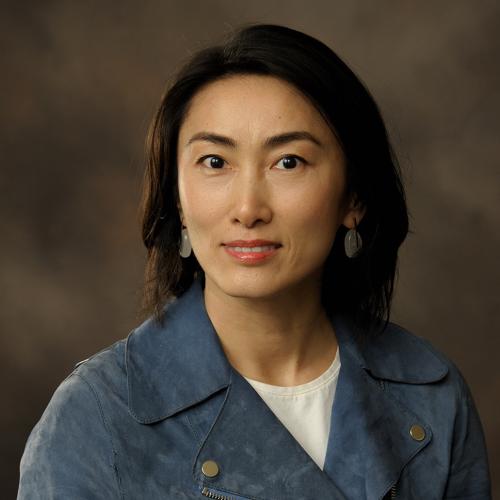The University of Illinois is part of a nine-university consortium led by the University of Buffalo that has been awarded a $20 million grant by the National Science Foundation (NSF) to establish a national institute that develops artificial intelligence systems that identify and assist young children with speech and/or language processing challenges. The award will establish the AI Institute for Exceptional Education to advance foundational AI technologies, human-centered AI design, and learning science that improve educational outcomes for young children.
The institute will help address the nationwide shortage of speech-language pathologists (SLP) and provide services to children ages 3 to 10 who are at increased risk of falling behind in their academic and socio-emotional development–issues exacerbated by the COVID-19 pandemic.
Investigators on the Illinois team will include iSchool Associate Professor Yun Huang, who will share her expertise on human-centered AI design for multi-stakeholder interaction.
"I am thrilled to be part of this big team," said Huang. "We will apply human-centric AI design to solve this important societal challenge by involving multiple entities, such as children, caregivers, SLPs, and their surrounding environment, in the technology design and evaluation."
"Our multidisciplinary team will enhance automatic speech recognition systems, improving early identification and interventions for children with developmental language disorder and other conditions that affect speech and language," said Pamela Hadley, professor and head of the Department of Speech and Hearing Science at the University of Illinois, one of the co-principal investigators for the grant. "Our team will also create advanced artificial intelligence systems that will support tailored interventions for children on the caseloads of speech-language pathologists. By doing so, we will create educational environments that help children thrive socially and academically."
Institute will help underserved students
The AI Institute for Exceptional Education will focus on serving the millions of children nationwide who, under the Individuals with Disabilities Education Act, require speech and language services.
Specially, it will develop two advanced AI solutions: the AI Screener for early identification of potential speech and/or language disorders; and the AI Orchestrator, which will act as a virtual teaching assistant by providing students with ability-based interventions.
The AI Screener will listen to and observe children in the classroom, collecting samples of children's speech, facial expressions, gestures and other data. It will create weekly summaries of these interactions that catalogue each child's vocabulary, pronunciation, video snippets and more. These summaries will help teachers monitor their students' speech and language abilities and, if needed, suggest a formal evaluation with a speech-language pathologist.
The AI Orchestrator is an app that will help speech-language pathologists, most of whom have caseloads so large that they must provide group-based interventions for children instead of individualized care. The app addresses this by recommending personalized content tailored to students' needs. It continues to monitor students' progress and adjusts lesson plans to ensure that the interventions are working.
"The AI Institute for Exceptional Education follows eighteen already established NSF-led AI Institutes, an ecosystem of AI research and education in pursuit of transformational advances in AI research and development of AI-powered innovation," NSF Program Director James Donlon said. "We are happy to welcome this new team to the AI Institutes program."
Institute comprises top research universities
The institute will consist of more than thirty researchers from nine universities, including the University of Illinois, University of Buffalo, Stanford University, University of Washington, Cornell University, University of Texas at El Paso, Penn State University, University of Oregon, and University of Nevada, Reno.
In addition to Huang and Hadley, the UIUC team includes Heng Ji (Computer Science), Mark Hasegawa-Johnson (Electrical and Computer Engineering), Hedda Meadan-Kaplansky (Special Education), and Windi Krok (Speech and Hearing Science).
"We are eager to see how this team advances AI research to develop better solutions for children with specific speech-language needs, as well as their families and the U.S. schools who serve them. This project is a great example of how we can harness the opportunities that AI technologies can offer to enhance the services that our nation can offer the American people," NSF Program Director Fengfeng Ke said.
